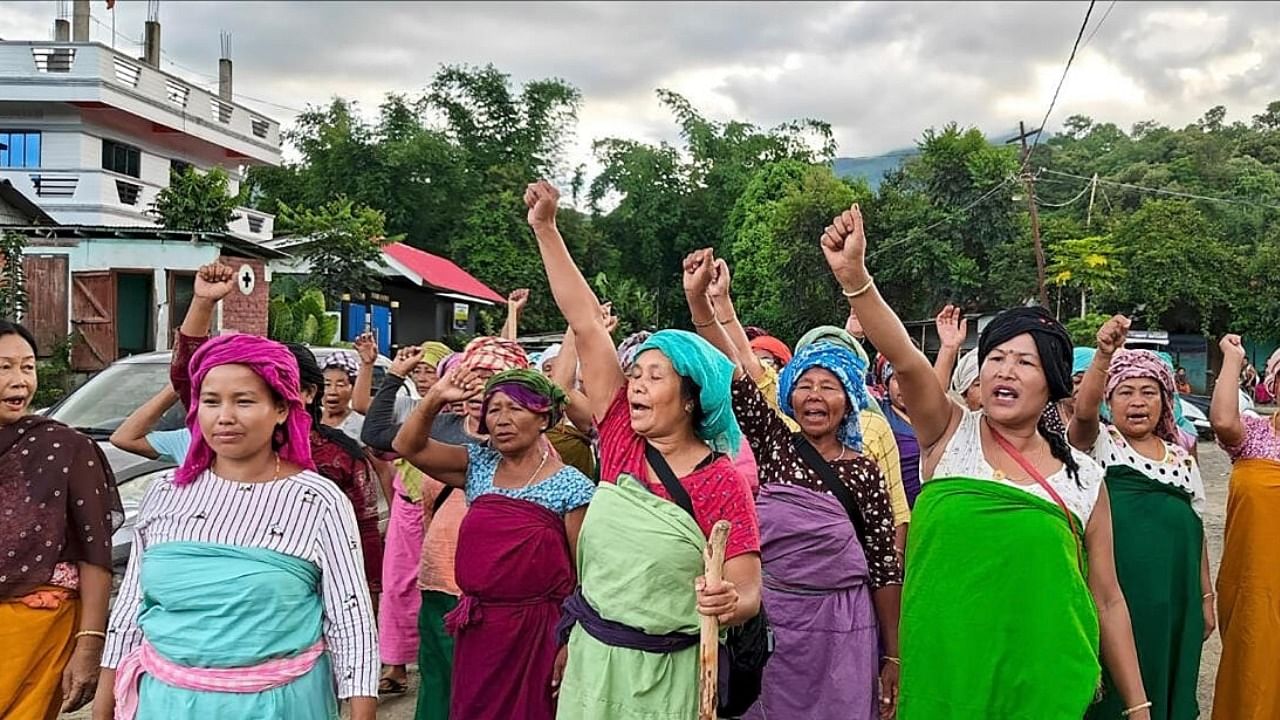
Meira Paibis, a network of imas or mothers of the Imphal Valley of Manipur, are celebrated as icons of women’s empowerment and human rights defenders.
In 2004, the Meitei women’s group sent shockwaves when they stripped in front of the local headquarters of the Army and the Assam Rifles in the state capital Imphal to protest the killing of young women by the army personnel during counter-insurgency operations. Before that, the imas had earned the respect and clout for their decades-long role in fighting drug abuse, alcoholism and sexual violence in Manipur society.
Nearly two decades since their “strongest protest” in front of the historic Kangla Fort, the Mothers or imas of Manipur are now being accused of adopting a partisan role in the ongoing ethnic clashes between the Meiteis and the Kukis.
The Army, Assam Rifles and Kuki organisations have accused Meira Paibis of leading Meitei mobs against the Kukis and aiding in the sexual harassment of Kuki women. Indigenous Tribal Leaders’ Forum, a Kuki organisation, claimed that the imas accompanied the Meitei armed miscreants in their attack on Kuki settlements, blocked security forces and forced the release of “separatists” responsible for killing soldiers.
The Army on June 25 claimed that the women vigilantes led the mob which set free 12 militants, only because the terrorists were from their “own” Meitei community.
When asked by DH, Lourembam Nganbi, president of All Manipur Kanba Ima Lup, a forum of the Meira Paibis said all that the women vigilante group was doing was for “protection of Manipur’s land and people from the illegal Chin-Kuki migrants”.
“Our fight is against the Assam Rifles, who have taken a pro-Chin Kuki stand and are not saving the majority Meiteis from attack by the Kuki insurgents. We have nothing against the Kukis of Manipur but we are against the Chin Kuki illegal migrants (from Bangladesh and Myanmar) and those who are occupying our land and attacking our people,” she said.
Nganbi said the mothers of Manipur were confronting security forces as they were stopping the “sons of Manipur” (Meitei youths) from protecting “our land and our people”. She alleged that Assam Rifles personnel were aiding Kuki militants in opium cultivation and drugs smuggling and were not taking action against the Kuki militants violating the suspension of operations agreements. They also demand abrogation of the agreements with the Kuki insurgent groups.
She, however, rejected the allegations about helping the Meitei men in sexual attacks on the Kuki women. “Being a women’s rights body, we can never act against the women, be it Kuki or Meitei,” she told DH.
Melody Kshetrimayum, an academician, who did her PhD on women’s rights movement in Manipur said it is wrong to accuse the Meira Paibis without understanding the ground realities and the strong sense of fear and mistrust resulting from the nearly three-month long violence.
“There is a complete breakdown of law and order even in the presence of the security forces,” she said, pointing out that Meira Paibis had provided shelter to Kukis during the Naga-Kuki conflict in 1993. “People are overlooking the number of protests they have done for peace.”